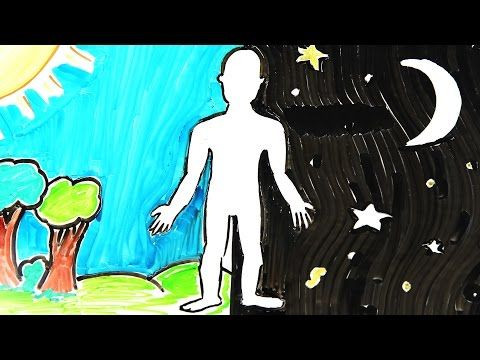Day And Night: How The Human Body Runs Over A 24-Hour Period

A 24-hour period is very taxing on the human body. From day to night, our body is constantly going through changes that affect basic functions like sleep, hunger, and even sex drive. In AsapScience’s video, “This Is Your Body Over 24 Hours,” creators Mitchell Moffit and Gregory Brown explain the different states the body undergoes and the optimal times to do everyday activities from the morning, afternoon, and evening.
Morning
In the morning, the alarm goes off while we're caught between wake and sleep, known as the hypnopompic state. When we finally do get up, we become groggy and disoriented due to sleep inertia that lasts 10 minutes, but can linger on for hours. Meanwhile, our body temperature is low, our blood pressure is rising, and there’s an increase in cortisol — stress hormone — pumping through our veins as we prepare for the stresses of the day. Typically, the ideal time to eat breakfast and drink coffee is an hour after waking up.
Not surprisingly, late morning, after eating breakfast, we begin to reach our mental activity peak while we’re at work. Most of us are at our sharpest two-and-a-half to four hours after waking up, but our memory is impacted as the day moves on. According to AsapScience, we forget an average of five facts, but by the afternoon we forget around 14. If you’re a young adult, you tend to become more mentally alive in the afternoon and evening, but everyone’s biological clock seems to turn off the proteins involved in forming long memories at night.
Afternoon
Midday or noon time, the stomach is ready to expand as much as two-and-a-half pints to receive a meal, which digests in the stomach for a few hours before it’s sent to the small intestine. We feel the effects of lunch around mid-afternoon, when a wave of fogginess and fatigue comes over us. Although the meal delivers a short boost of energy from glucose, this is followed by a wave of insulin that makes the body feel depleted. This can be combated by squeezing in a workout around 4;30, since core body temperatures are peaking and you can even gain 20 percent more muscle strength.
Evening
After work and working out, going out for happy hour at 6 p.m. is the ideal time to start having cocktails. This is because we’re actually more tolerant to the effects of alcohol without compromising our reaction time and psychological functioning. Before bed, we may engage in sexual activity, specifically around 11 p.m., since it’s the most popular time for sexual activity. This has more to do with our schedules than our bodies. Testosterone levels tend to be lower in the evening and start to peak in the morning, with semen quality being the best in the afternoon.
Finally, as we drift off to sleep, the body secretes melatonin, which initiates the sleep cycle and happens multiple times at night. During sleep, the body experiences alpha waves, longer delta waves, which eventually leads to REM sleep. We dream for an hour-and-a-half to two hours each night. Meanwhile, in the middle of the night, the body wakes up periodically due to microarousals that last seconds but occur between 200 to 1,000 times per night.
In the early hours of the morning, the body temperature is at its lowest while we continue moving through the sleep cycle. In a few hours, the body will start this process all over again. Within the next 24 hours, it’ll be time for another day.
Published by Medicaldaily.com



























